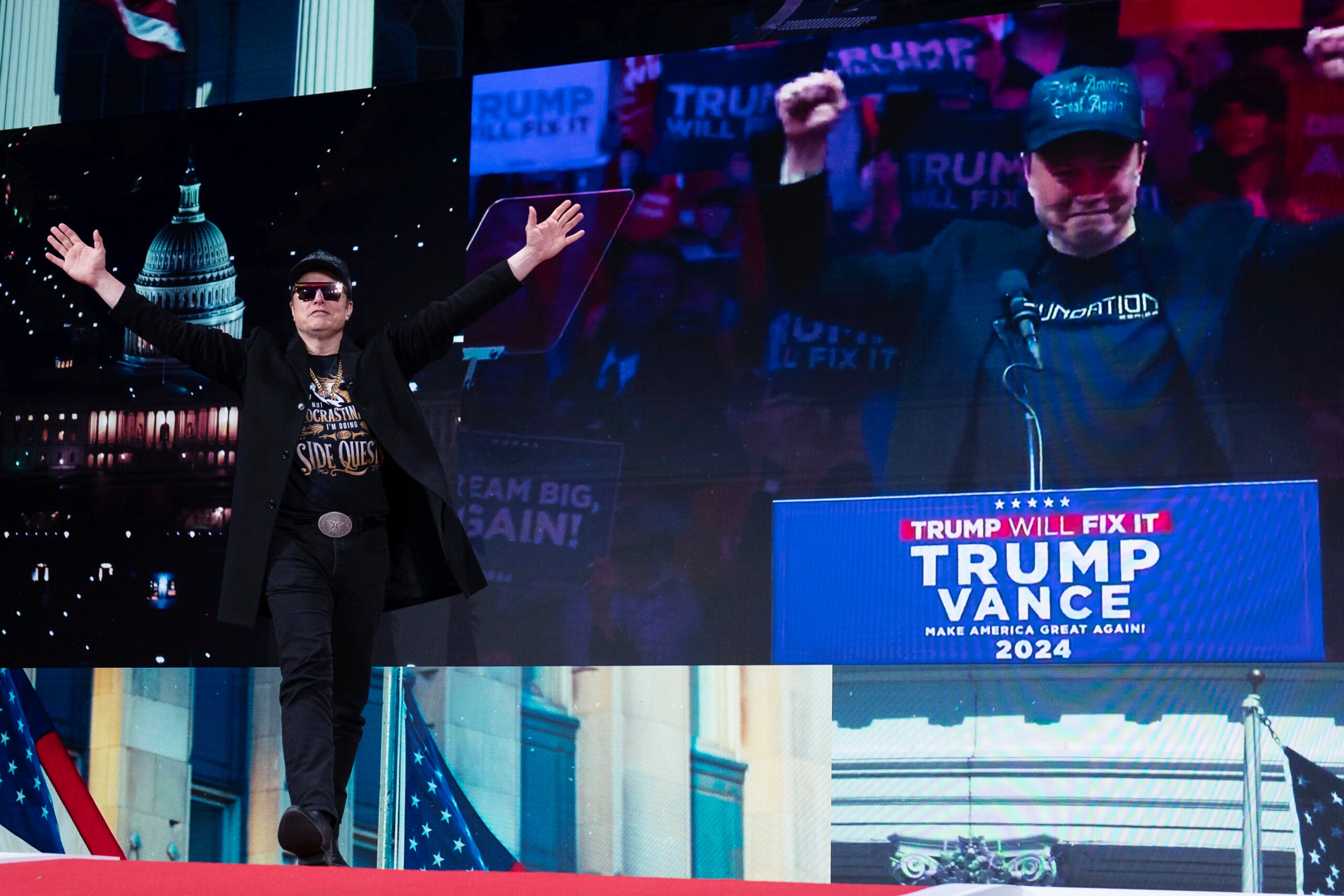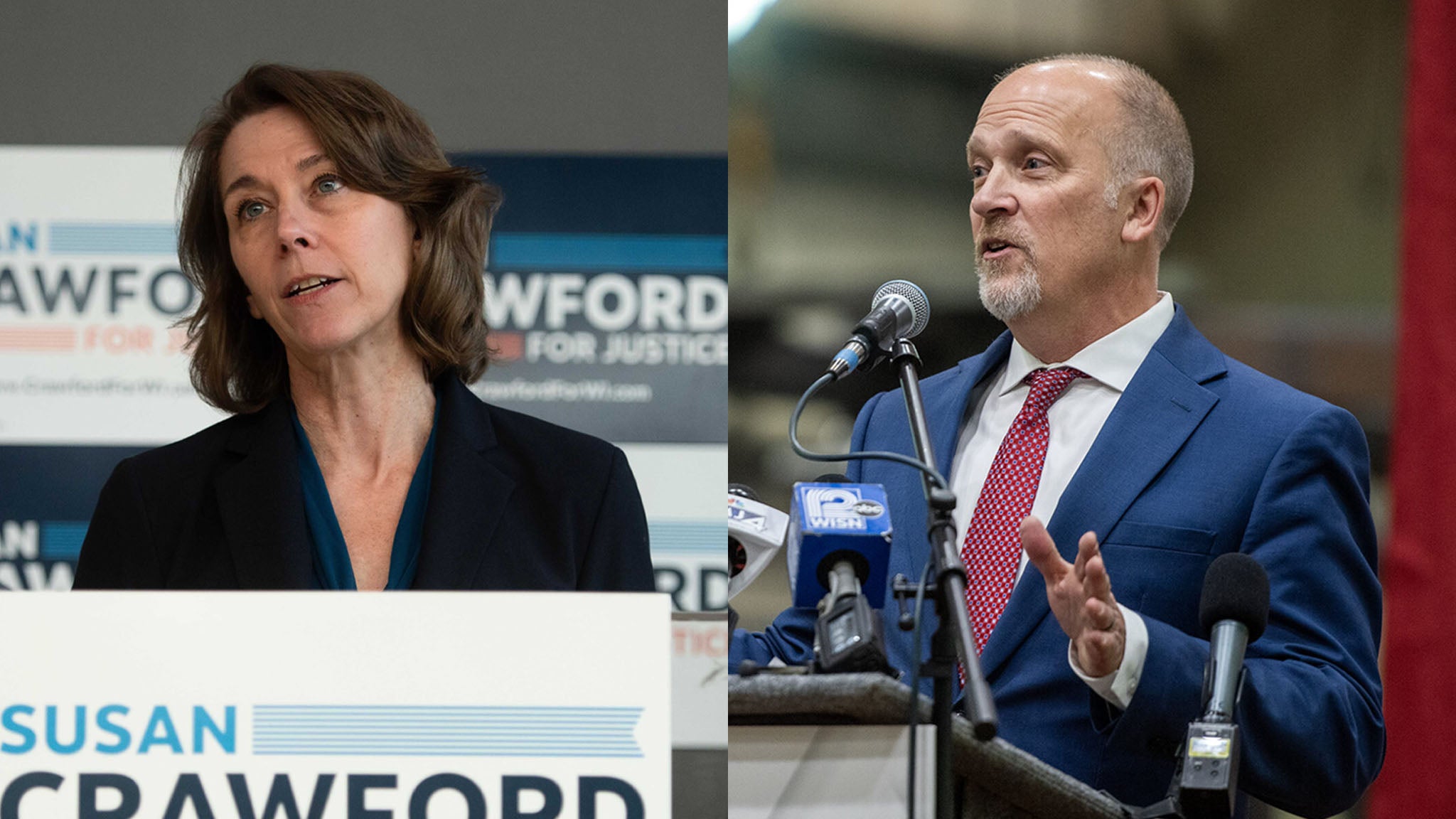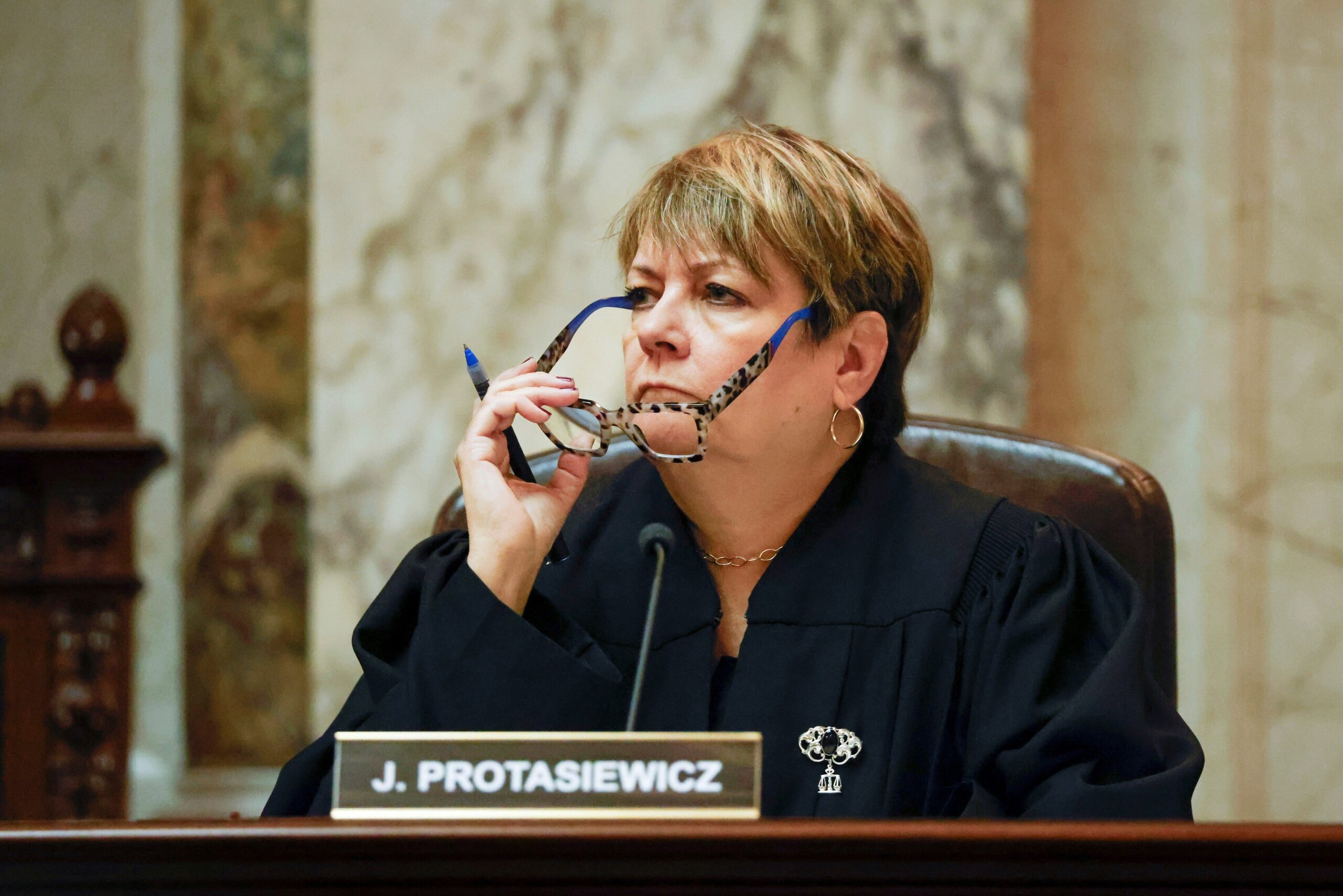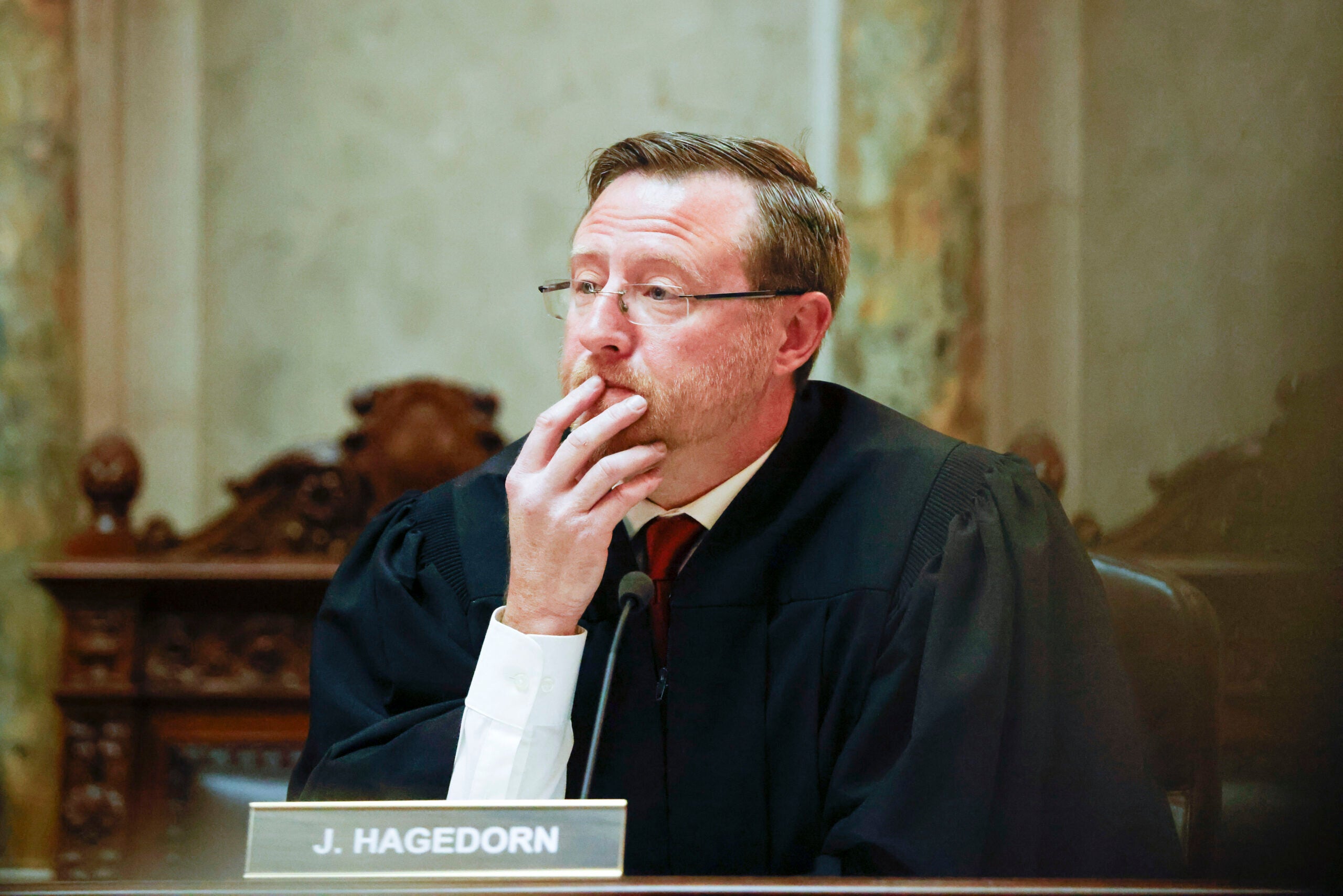Liberal advocacy group Common Cause in Wisconsin is calling for stronger recusal standards for the state’s judges and Supreme Court justices. They argue elected jurists should have to reveal campaign donors and step aside in cases that involve people or organizations that have contributed to their campaigns.
The group kicked off a series of “town hall” meetings on the issue Monday night in Green Bay.
Common Cause’s executive director, Jay Heck, said Wisconsin ranks 47th in the nation regarding the strength of its recusal laws.
Stay informed on the latest news
Sign up for WPR’s email newsletter.
“I think most Wisconsinites would be shocked to know that we essentially don’t have a recusal rule for candidates for judge at all levels — from municipal court to the Supreme Court — who are the recipients of campaign contributions or by spending through an outside special interest group,” Heck said.
Under current rules, Heck said, judges and justices are effectively on the honor system when it comes to recusing themselves from a given case. Previous recusal standards were loosened in 2010 with the backing of conservative groups, Heck said.
Common Cause is pushing a proposal that would require Supreme Court justices to reveal campaign donations of more than $10,000. Appeals judges would have to disclose donations of more than $2,500; county judges more than $1,000; and municipal judges over $500.
Former Wisconsin Supreme Court Justice Janine Geske, who served from 1993 to 1998, is in favor of the proposal. She said the issue is especially important for the state’s highest court and believes strengthening the rules would give the legal system more transparency.
“If everybody agreed to it and the judge thinks he or she can sit (in a case involving campaign donors) that’s alright but then everybody knows,” she said. “As it stands now, people don’t know if the justice or the judge has benefited from one of the parties in a prior campaign.”
Geske said people with a court case should know if a judge may have a conflict of interest in a case.
“It doesn’t affect anybody who doesn’t have a case in front of the court,” she said. “Right now the rule in Wisconsin is that no campaign contribution alone, no matter what its amount, are grounds for a justice to withdraw from a case. So parties don’t even know if a justice has benefited from a particular party or a lawyer.”
Any change in recusal rules would have to be approved by the state Supreme Court itself. Earlier this year, the court’s conservative majority rejected a similar proposal for stronger standards that was endorsed by dozens of judges.
At the time, Justice Rebecca Bradley, one of the court’s five conservatives, blasted that plan saying, “every judge and justice in the state of Wisconsin should be highly offended by this petition because it attacks their integrity and their character.”
Common Cause in Wisconsin will host two more meetings this month on Wednesday, Oct. 11 in Milwaukee and Tuesday Oct. 24 in Madison.
Wisconsin Public Radio, © Copyright 2025, Board of Regents of the University of Wisconsin System and Wisconsin Educational Communications Board.




